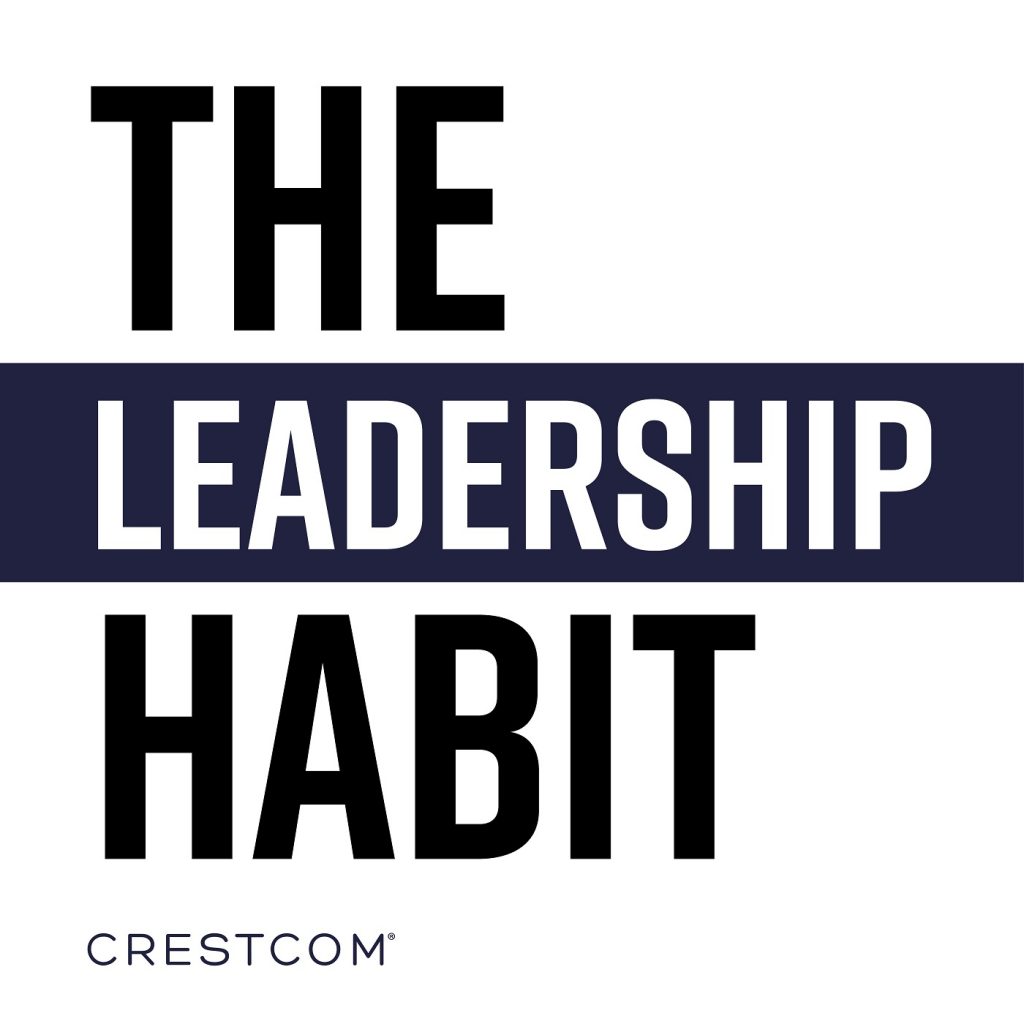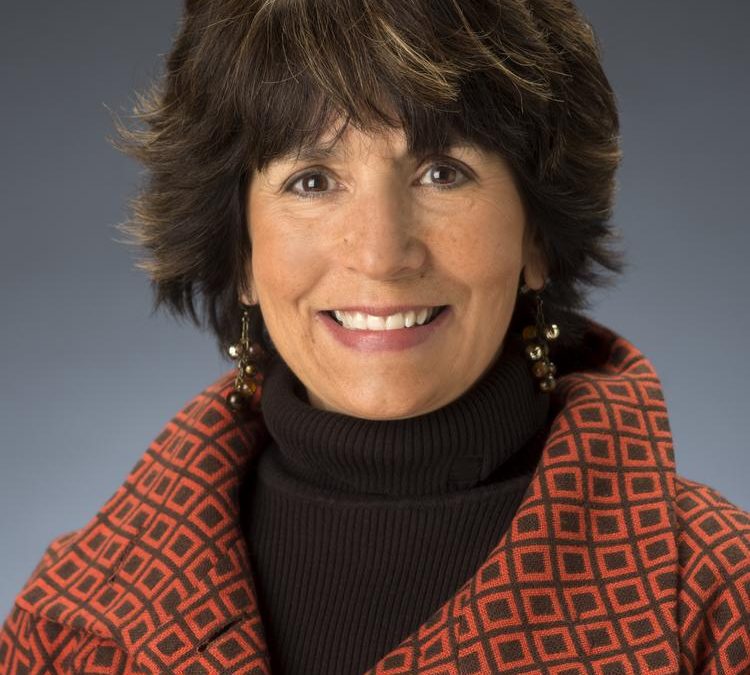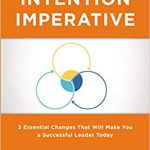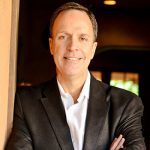Podcast: Play in new window | Download
Subscribe: Apple Podcasts | Spotify | Email | RSS

On our premiere episode of The Leadership Habit, Leadership Development Strategist, Jenn DeWall, talks to the CEO who authored the book The Leadership Habit, Tammy Berberick. Tammy tells us about the exciting mission of Crestcom International to develop stronger, more ethical leaders all around the world. She talks about common challenges facing CEOs today, and how they can engage and retain their employees while improving their bottom line and encouraging innovation.
Transcript below:
Intro: 00:01 Welcome to the leadership habit podcast from the Crestcom Leadership Institute, the show that brings you inspiration and information to help you transform your leadership style. We use our experience developing leaders in over 60 countries worldwide to help you develop the skills and tools you need to reach your leadership potential, join us in our mission to create a better world by developing stronger, more ethical leaders. How can you make leadership a habit today?
Jenn DeWall: 00:36 Welcome to episode one of The Leadership Habit. I’m Jenn DeWall, a leadership development strategist and I’m excited to be launching Crestcom International’s new podcast. The Leadership Habit. We are kicking off the first episode introducing you to Crestcom CEO Tammy Berberick. Tammy holds an MBA and has held numerous executive level positions leading transformational change within both small and large organizations. Tammy has coached over 100 CEO’s and key executives on leadership, change management, organizational design and strategy. She also literally wrote the book on Developing Great Leadership Habits. It’s called The Leadership Habit available now from your favorite bookseller. Welcome, Tammy.
Tammy Berberick: 01:27 Well, hello and thanks for having me, Jenn. I’m excited about being here.
Jenn DeWall: 01:33 Tammy, you have an impressive background and a really great, admirable, respectable history of developing leaders. So tell me why is leadership development important to you?
Tammy Berberick: 01:47 Well, Jenn, I am blessed, truly blessed, to have the opportunity now in my life to work in an organization where my personal mission is aligned with the organization’s mission. I’m passionate about leadership. And I love to help people do great things and have impact together. You know, leadership, my definition of leadership, Jenn, is the ability to engage a group of people to perform well above their perceived capabilities to achieve a shared vision.
Jenn DeWall: 02:33 Yes! Leadership is pretty powerful. Thinking about how we can unite people to work together and just really help empower them to be their best selves. So Tammy, you’re the CEO of Crestcom, and for those that are unfamiliar with Crestcom, how about telling us a little bit more about what Crestcom does?
Tammy Berberick: 02:52 Yeah, absolutely. At Crestcom, Jenn, we believe that we can make a difference in this world by developing great leaders. Leaders who are ethical and strong in their beliefs. Leaders who will make more thoughtful decisions going forward and leaders who are committed to lifelong learning, not only for themselves but for those they lead. And when you look around today, I mean I just watched the news last night and this morning, you realize the importance of what we do. You realize the urgency of what we do. We live our mission by developing, or we live our mission by delivering an interactive leadership development experience. One that produces real results. Every word is important in that because what we do is always going to be interactive. We are experts in leadership development and we will always ensure that it’s applicable and it has measured results. We hold our participants accountable for their action plans. And we’ve been doing this for over 30 years in well over 60 countries. And we know from our experience and from research, we know what it takes to have an effective program, an effective program with sustained behavior change. So what we do will always incorporate three key elements. Implementation. It’s got to be practical got to be able to implement it and it’s got to be measurable and include accountability. We, in order to have sustainability, we’ve got to hold our participants accountable to implement and then they’ll get it. Leadership will become a habit, a daily habit for them.
Jenn DeWall: 05:20 I want to ask you a few questions about leadership habits, but before we get into it, you mentioned something about the accountability piece and I think that’s really important to bring up. What Crestcom does is building in that accountability, because I know myself personally, I have attended leadership trainings. I have been to different classes because I do love to develop, but the biggest challenge that I have is actually following through. Sometimes I get that information and I don’t necessarily utilize it.
Tammy Berberick: 05:53 You’re absolutely right. And let me just take you through a little bit more about our program and our methodology. Our program is a 12-month program. We don’t believe in these one off type of training programs. We believe in developing a relationship with our participants and we believe in a 12-month type of process. So we facilitate two leadership modules every month and it’s 24 interactive modules in total. And then during the class, our participants actually practice the new tools or the new processes and then we hold them accountable to implement the concept in their organization before they leave our class. We have them pull out their phones and write down their ideas and their action plan and our mobile learning portal. Then from there, after the class, we do a few things. First of all, we send some reinforcement material a few days after the class to keep them in action, to keep them thinking about what they learned in the sessions. And then we also send a summary that automatically comes out again, sort of a summary of what they learned. Again to trigger are you in action? Are you in action? Are you thinking about this as you’re going through your day to day? And then we don’t stop there. In fact, what we do is we have what’s called a debrief meeting with them. So we go to their office and we meet with their team and we talk about this. We get the, the supervisors and the CEO involved because we’ve been sending them summary so they know what the participants are learning. So we have a dialogue about the learnings and we talk about what struggles you have, what have you implemented? And we can see that right up on the screen because we’ve got their learning portal online and what are you still struggling with? And what we want to do is create this culture of openness, create this culture where people are learning together and, and people feel like it’s okay to be vulnerable, and to help each other be better leaders. And so this is not easy and, and oftentimes we get busy and that’s why we put so much structure around our process because we need to help you as much as we can get in to the habit. The habit of leadership.
Jenn DeWall: 08:56 Well, yeah, it’s understandable. I mean if you think about it, we all have a million things that we’re running to. I know myself personally, I have, the day of work and then going home, taking the dogs for a walk, cooking dinner; or if you have children, it’s putting them to bed. It’s a lot. And so it sounds like that structure is just something that’s so valuable. And the other piece that I thought was interesting that you said is just that connection, that collaboration that’s created with that leader who attended the program, they’re managing their company. There’s that connection to say, we’re in this together and we want to support you, so let’s see what you were able to execute and implement as a leader. How did that go for you? It sounds like you’re actually introducing a lot of those coaching conversations, which we know today are so important.
Tammy Berberick: 09:44 And there is no failure here. There’s only learnings.
Jenn DeWall: 09:49 Tammy, thank you so much for helping us learn a little bit more about what the background of what Crestcom does, the background of Crestcom as well as understanding a little bit more about the leadership habits. So now what I was hoping to do is get your insight into some of the challenges leaders in organizations face today. So there’s a recent report that was published by the Deloitte University Press, and it said that 80% of company leaders recognize that there is a leadership skills gap in their organization, but half of those leaders don’t have a plan for closing that gap. Why do you think that is? And why should we better prepare new leaders for increased responsibilities.
Tammy Berberick: 10:35 Well, Jenn, those are great questions. And let’s start, let’s start with the “why”. Why is it important to develop our leaders? And let me personalize this for a minute. I run an organization and with today’s low unemployment rates, it is difficult to find good people. And so that means that the people that you have, those folks have to be developed to take on more responsibility. And not to mention that it is critical that you retain these people because they have other options. So you’ve got to make them fall in love with your organization and you’ve got to let them know that you care about them as people. There’s just so much change happening today. Jenn, if you look at just in a year the change that’s going on in the world and the change in our world, and our state and in our industry. That means you’ve got to learn how to deal with change and you’ve got to be agile. So what, what we’re really wanting here at Crestcom, personally what I’m wanting is to have and to develop a group of employees who are lifelong learners, employees who are genuinely curious. In fact, I just read an article about this in this month’s Harvard Business Review. These types of employees will, instead of reacting to change, will proactively anticipate changes that are occurring in the market. Just think about that. Think about the impact of having an employee base made up of lifelong learners, right? Think about the energy level. Think about the fact that you would become more of an agile, innovative organization. I mean, I bet there’s studies on this and a lot of analytics in companies that you would get into, that an organization full of lifelong learners is far more competitive and far more profitable than other organizations. So that, to me, that’s the “why”, Jenn. And your second question is, well, if the “why” is so key and there’s so much value in it, why aren’t they doing it, right? Why aren’t they investing in their people? Why aren’t they closing these gaps? There’s probably several reasons, but I think the primary reason may be time. But in reality, development really creates time. Good leadership development actually builds capacity, and gives you back time. And so we’ve got to spread that message around. We’ve got to make sure that leaders understand that. And then secondly, some of the organizations don’t see a return, or they haven’t seen a return on investment from their previous development. And to me, this means that you probably have had the wrong development. Because we take this seriously here at Crestcom, we believe in value or we’re not, we’re not after just selling a commodity here. What we’re after is offering value and having impact and we want to see that impact with our participants. I mean, that’s why we do this, that fuels us up. That’s why we’re in this business. So I think finding the right organization, that is going to be your partner and is an organization where your folks can engage and you can see the return is important.
Jenn DeWall: 15:37 And building that in, you know? At a lot of companies, you mentioned it earlier, time can be a barrier to development. Maybe not realizing that it’s actually an expectation, especially with what I’ve read about the millennial generation. It is an expectation that an organization provides developmental opportunities or opportunities for growth. If not, you’re going to lose that employee and you’ll incur those higher turnover expenses, the on-boarding. That’s where training, I think, the cost seems like it’s actually high. Whereas, if you look at it as a developmental opportunity and an investment and you do that head on and you’re intentional and you focus on saying “you’re new” or “you’re young and we want you to be successful, here’s those opportunities”. That’s where that return on investment is. And if we don’t do it, we don’t get that return on investment to our bottom line. So, it kind of dovetails into that. What kind of real-life results do you think that organizations see when they actually invest in training?
Tammy Berberick: 16:40 Well, we get testimonials from our clients all over the world, and I love reading these testimonials, by the way. I mean, they totally make your day. But they, they say things like not only did this development make me a better leader in my organization, but it also helped me be a better spouse. It also helped me be a better parent. I mean our development impacts your whole life. I also remember interviewing one of our participants, while I was in Trinidad. And she tells about a story and she was negotiating this, this big deal in her company. When she had first gone into the initial negotiation, she really wasn’t satisfied with it. And then she had attended our session on negotiation- and this is a true story. And she talked to me about it after she did that, she went back and re-did her negotiation strategy and approach and she saved over $500,000, for her company through that negotiation. And she tells you that this is attributable to her development. And so, there are soft impacts and there’s what you call hard dollar impacts. But when I think about it, they’re all impacts that really show up. They show up in the energy of your organization, they show up in the decision making in your organization. They show up just in the everyday interactions. You want folks to want to come to work. And I love being able to go into our learning portal and, and pull down some of these action plans and these results. And just to read some of the things that they implemented. Some of these are small things, small things maybe to me or to you, but maybe big things to them. And then some things are like huge things that they’re going after, something that triggered a thought right there in the class and it triggered something, then all of a sudden they’re going after something big, something very big for themselves and for their organization. So, I love the fact that we can view that and that CEOs and supervisors can also get in to our tool and view this. I mean there’s complete transparency there in terms of what the return is. And the other thing I would say is people keep coming back. We have a huge repeat business. And so we must be doing something right.
Jenn DeWall: 20:21 Yeah, absolutely! Well, you said it earlier, it’s not only about how can I make you show up in a way that you can be more influential and more successful at work. Right? It doesn’t stop there. It carries over into our personal lives. It really, it sounds like just impacts that overall happiness, that quality of life. We’re not just talking about leadership as a generic topic. We’re talking about your ability to enjoy your life, to be able to be the person that you want to be, to be that leader inside and outside of work.
Tammy Berberick: 20:55 Our life is precious, right? And we’ve got to take that seriously. And so every day is precious. We’ve got to make sure it’s good.
Jenn DeWall: 21:03 Yeah, and it’s great that these developmental opportunities hold that space for people to focus on their own development, their own goals. You talked about that creativity piece, attending those classes, thinking of new ideas. I mean, it’s great to think about how we can challenge ourselves and amaze ourselves. $500,000! To negotiate that in that negotiation is amazing. Those are great things to realize and it’s exciting.
Tammy Berberick: 21:35 Well, one of the other things I didn’t mention- that I love seeing- is that our public classes, Jenn, our public classes have peers from different industries. And so I may say, for instance, my takeaway is one thing, but you are from a different industry and your takeaways another. And all of a sudden I’m like, wow, I didn’t even think of it like that, right? Because we’re all coming at this with different perspectives with different experience. And so then that multiplies my learning, right? So I’m learning from others in the class.
Jenn DeWall: 22:17 It’s like travel. Travel gives you that opportunity to see things in a new way and being able to participate in a class and hear a concept, but talk to someone outside of your industry and share those ideas. Think about how you can implement it. That’s a wonderful thing to know that the trainings are a catalyst for conversations. They are a catalyst for innovation and also that expansion and that networking between organizations who knows what type of partnerships can be generated from that.
Jenn DeWall: 22:51 So now we’re going to turn the corner a little bit. You’re talking about those results. You’re a CEO, which is a position that many people strive to achieve and it’s, oh my gosh, it’s something that I admire so much and I hope that I can be there one day. My question for you is, to the CEOs that are listening or the people that want to be CEOs, what advice would you give a fellow CEO about how to close the gap, to create a learning and development culture? So we talk about that training piece and what we’re doing as an organization to help people. But really there are some things that need to be addressed in the culture to prepare for these expansions. So what advice would you have to close that gap?
Tammy Berberick: 23:45 Well, I would say ownership. And what I mean by that is you’d need to put more ownership on the employee. And you probably weren’t expecting that answer. You probably were thinking, that I’m having this big checklist of all the things that the CEOs would be doing, but really, there’s so much value in, in having an associate or employee take ownership of their own development. Right? Where do you want to go? Let’s talk about what your strengths are. Like, let’s really talk about how you’re going to grow those strengths. How are you going to leverage those strengths? Let’s talk about what you’re passionate about. Alright? So let’s talk about this, this combination of passion and things that you’re good at and figure out where that’s leading, right? So I put more ownership around, I would put more ownership with the employee. At Crestcom, we do a short session with companies and the folks who go into our program and we get feedback. And, then we coach CEOs. One of the things we tell CEOs is it’s important to not force this on your employees. I mean, employees need to want to do this. And so that’s why we do this mini- oftentimes we do this mini leadership skills workshop for organizations where they can actually experience our training. Then, the CEO can see firsthand, let me see how my employees react to this. Do they like it? Are they engaging? Is this something that really works for them versus me pulling my employees to attend something? I don’t think that works. I think that we’ve got to have people that really want to develop themselves and then we offer that, uh, that opportunity. I think that’s key. Then the second thing is hiring people, right? Hiring people for talent and, and, and people that want to grow themselves, right? So those two things,
Jenn DeWall: 26:27 Yeah, you need the right people to be able to execute that organizational mission. And you said something too, about not only finding that ownership, but starting the conversation and that if you haven’t started the conversation with your employees yet, chances are they may be feeling lost, disconnected, and they’re wanting that connection and opportunities to grow and develop. So for CEOs, it’s about starting those conversations instead of pretending that development is something that’s in a silo and not part of our day to day responsibilities. That’s huge. You’ve been in the learning development space and you’ve had a really great career with a lot of successes. In your opinion, how has learning and development changed over the years?
Tammy Berberick: 27:17 I think the delivery has changed and I think we will continue to see change in that realm. So we know today that face-to-face, live-facilitated development is best practice, right? We know that you can see the whites of their eyes and see are they getting things and that’s best practice and that is our methodology today. But we also know that with technology, interactive technology improving every year, there’s going to be movement to where that can really be a nice blend. You might have heard of this concept called the flip classroom?
Jenn DeWall: 28:17 No, I’m not familiar with that.
Tammy Berberick: 28:18 So several of the schools, some of the schools are piloting this. And basically what, happens is that that the students are doing a portion of their learning online, self-paced with an interactive type of self-paced learning and then they are meeting face to face for more of an immersive experience to practice what they learn. And I think this is an interesting concept and this is something that we’re currently exploring with Crestcom. In the next few years you may see more- and our continuing education portion head in this direction because it’s interesting. And the whole thing for learning is that previously, learning was the manager’s job or HR’s job. And now like I said, learning is really going to be more personal and it’s going to be driven more by the employee. So that means we’ve got to really understand how various employees learn, right? We all learn differently and we all want different methods of delivery based on our learning styles. So what we’re going to see is that the learner is going to be more in the center of the learning and development and we’re going to be focused on them, and then develop the best practice in those skills around how they can best take that learning in. So this is a really exciting time for Crestcom, it’s a really exciting time for our industry. We’re going to see a lot of changes over the next few years.
Jenn DeWall: 30:24 It sounds like there’s just that opportunity to personalize, to make it accessible. Again, time is one of the biggest barriers to people wanting to do this and blended learning, having opportunities to do it on demand, or opportunities to meet face-to-face. People want options. And the more that we give those options, the more that you get those options, the more success others will have. I’ve just really been enjoying this conversation, but I want to dive in again. I’m going to give you another statistic. So, according to the Udemy in Depth: 2018 Millennials at Work Report, 42% of millennials said that learning and development is the most important benefit when deciding where to work. So how does this desire from the newest and largest workforce demographic impact organizations today?
Tammy Berberick: 31:21 I think this is key for organizations to understand. Millennials want a career path, they want development and they want to continuously know where they’re heading. When I think back to when I started, it was, I was just so happy to have a job. I wasn’t like, when’s my next promotion? I wasn’t into that. I was like, head down, just keep my head down and work as hard as I can. But today, they’ve got more options for one thing. So we’ve got to- as CEOs and leaders- we’ve got to make sure we’re attractive to the largest working generation. And so that means we’ve got to focus and, and, and we can’t be bugged by that kind of discussion, right? We need to know how to be open to that discussion. We need to know that this is just who they are. This is what they’re wanting. And, and we need to be able to have those discussions. And, frankly, I love this. This goes along with my previous point, is I want our employees to own their own development. I want our employees to be pushing me in terms of their, their path. But that doesn’t mean they’re going to get that path. What they are going to get is they’re going to get some clear feedback and they’re going to get some opportunities to learn. And that’s really what they’re, they’re wanting. And, I often see that, “oh, millennials don’t want to work”. I don’t think that’s the case. I think millennials need an open dialogue about where they are and where they’re going and, and how do they get there. And the other thing I would say about this workforce is that they want to work for organizations that have a worthy purpose. They believe their time is very valuable and they want to make sure that they’re aligned with that purpose. And all that I think is positive.
Jenn DeWall: 34:31 Yes. And you touched on it, many people can be bugged or bothered by this desire from that large generation to have developmental opportunities. But really, if we think about the benefits of that investment, we have the benefits and improve performance. We have the benefits and improved morale and engagement. Does it come with requiring a little bit more up-front time? Sure. But the long-term gains can be incredible for any organization. And so it’s, it’s great that I think millennials are challenging their organizations to think about how to think of their people as people that want to do the best that they can. They’re not just a means to an end. These people want to be the best. They want to figure out how they can support you, and development is one of those ways. And then on that flip side, recognizing again that human need to want to have that purpose, that meaning to their work. Just say like, I am so glad that I can help them do x, y, and z because that’s going to make a difference in someone or something’s life and purpose. So let’s get a little bit more personal now, Tammy. Um, your position, I’ve said it many times as CEO is extremely respectable. What does the road to CEO look like, and how do you prepare yourself to grow in your career? So maybe you are talking to one of those millennials that really wants to grow to be a CEO one day. So thinking about what does that road to CEO look like?
Tammy Berberick: 35:30 That’s a very broad question. I think because the road is so different for everyone. I’ll just share, where my path was and send them my insight. My undergrad and my first job out of college was at Arthur Andersen and I was a CPA, and this financial foundation and that true understanding of a P&L has been so extremely beneficial throughout my career. And I know you’re like looking at me. Oh, that does not sound fun. But I’m telling you that I’ve been in so many different functions and having this background as a foundation has been very beneficial because I understand KPI’s, I understand levers of a P&L. And for me that was very helpful. Especially when you’re running an organization, you’ve got to be able to know your P&L and know what is important to know how to grow your business. Then secondly, I later worked in a much larger corporation with great leaders. They were great leaders from all over the world, great leaders from all different organizations, from Frito Lay and Pepsi, Kraft. And I mean, I can go on and on, Walt Disney, and what I got to see so clearly, is what good looks like. I got to see some of the behaviors of a great leader. And then the third point is, I owned my career path. I mean, I keep saying this is great that employees own their career path. I mean, I owned my career path. And everyone’s path is different and my path would be very different from your path. But the learning there is you got to know what your path is and, and you’ve got to own it. I took several cross-functional moves in this organization and, I mean I moved from finance to sales to HR to IT to strategy and, and everybody was like, are you crazy? Why are you doing that? Because it was a ton of work, right? Because I go into these organizations at a fairly high level and really don’t know much about them. So there was just such a huge learning curve for me. And it would have been much easier for me to stay in my function, say of finance and just to simply grow that way. But that was not my path. That is not what I was wanting. So you’ve got to know if, if, what, what your path is. And I was willing to pay the price, meaning I was willing to work hard, really hard to get up to speed to where I could add value in these cross-functional moves. And even though I was really working very hard, a lot of hours, I was also having a stair-step type of transformational development. Um, I wasn’t just having small incremental development steps. I was taking transformational type of steps and learning new skills and gaining new perspectives and learning how to deal with new stuff with different styles of personalities in the different divisions and the different functions. And basically, I was preparing myself to run a company. I really wanted to understand all aspects of a business and, and know them, not just from a cursory level but from a deep level. And that’s what I did. And so I was well positioned to do that. So if you want to run a business and you want to be a CEO sometime, then you’ve got to put yourself in situations of growth. And that also means potentially risks of not doing so well. And I was going to use that f-word, the failure. But what I mean by that, is where you might have not done so well, right? You would have learned, but you may not have done so well in certain areas because not all of those areas were my strength, right? I was building skills, I was building general perspectives, but I was also really honing what I love to do, which was I love meeting people and, I love what, the other thing I realized is I love change. I love moving and learning new things and then being able to stabilize that once I learned how can I make it better and then stabilize it. So it was all good learning for me.
Jenn DeWall: 41:21 You know- one of the things you said, I’m just thinking, what would we say to the younger self, to those individuals – what I heard you say, Tammy, is that part of it is being really intentional. Have a plan, right? You have to know where you’re going. It’s not just about getting up and hitting snooze, waking up, going to work, and coming home and watching shows on the television and then doing the same thing over and over. So, being intentional with where you want to go and finding those opportunities. And then, the other part you said is that embracing failure piece. Maybe not looking at failure as that awful detrimental thing, but really embrace failure as part of your stepping stone in the process. And one of the favorite quotes I have, is that “comfort should scare you”. So looking at it. Thinking about how can we pull ourselves out of our comfort zone to
Tammy Berberick: 42:16 I love that, if you get comfortable, it’s time to move.
Jenn DeWall: 42:20 That’s great advice. I mean, thinking about what I could have learned when I was just starting out, it would be helpful to think about it as the true marathon, but actually have a finish line in sight, right? Don’t just allow yourself to sit there and say what finish line? You have to set up some goals for yourself.
Tammy Berberick: 42:36 Right! And the finish line changes, right? Once you hit this, what’s your next finish line? Right? I mean, you really are on a journey, right? The journey of learning and journey of growth. And to me when I stop learning, it’s going to be a sad day.
Jenn DeWall: 42:54 Yeah. If you’re not growing, you’re dying, right? This is great. What leadership advice -we talked a lot about how we would help the younger selves- but this is interesting- talking from CEO to CEO. It’s got to be hard for some CEOs to really talk about their opportunities to improve their leadership and, or what they could do to manage some of the challenges, because who do they turn to, right? If they don’t have that network of CEOs, who do they turn to for their support? So what leadership advice would you give to a fellow CEO?
Tammy Berberick: 43:34 First of all, I would say to hire great people. Hire people that you want to spend time with and enjoy, you know? I love coming to work because I love seeing the people here. But also make sure that you’re hiring people that think differently than you do. And that’s not easy, right? Because, it would be easier for me to work with a group of people who think exactly like me, right? Because we’d get up, we’d all agree and then, ready, go! But at the same time, the decisions would not be the right decisions. They wouldn’t be the best decisions. And, and so you’ve got to value that. You’ve got to be able to value that diversity. And then you’ve got to be able to show yourself be able to be vulnerable. And I think that people in, maybe I shouldn’t generalize this, but I think people in higher level positions feel like they’ve got to have all the answers and they’ve got to be all buttoned down. And I think that really it’s about relating, and people want to work for real people. And to me, being vulnerable is being courageous and being human. One of the questions, Jenn, you asked me, before you got started, you were asking me about what leadership advice would I give my younger self and I’ve been thinking? I didn’t have an answer to that originally, but now I don’t know if this is leadership advice, but, I would play more. I started working at a very young age. I started working at the age of 12, and I know that sounds crazy, but I did, I was just so driven by work, I wanted to work and I wanted to be independent. And I never stopped working. And, I mean today I love it. I mean my passion is my work. But I also plan play. I plan play and I plan downtime. And one of my personal goals this last year was to laugh more.
Jenn DeWall: 46:30 Cool! I love that goal. We need to remind ourselves of that. I mean, again, we talked a little bit about what’s going on in the news. We get so caught up, we take ourselves so seriously or we become so bogged down by our day to day responsibilities that we forget to laugh. Just taking time to have play and recognizing that it’s important. I remember once I was having a conversation with an executive and he was talking about the differences in generations and he said something similar to you. He started his job and he was happy to have it, but it was head-down type job, and he said, “Today what I see is people want to have fun at work”, and he actually likes it. It was an adjustment for him, but he sees that value in the organization, of people having fun, having play, laughing, and how that can actually aid the successful outcomes that they achieve as an organization. So one last question for you, Tammy, -and this is a closing, even though I really loved our conversation. So as a leader, what leadership habit do you practice each day?
Tammy Berberick: 47:38 I think when you look at our book, The Leadership Habit, in the last chapter, which maybe should really be the first chapter now that I think about it, but it’s a little too late, is on personal growth. We as leaders often forget about ourselves. We sometimes forget about taking care of ourselves and what I mean by that, taking care of ourselves physically, taking care of ourselves spiritually, and emotionally. So I take that very seriously. Every morning I do a gratitude meditation and I exercise and that really fuels the rest of my day. And I believe how you start your day is key. So take good care of you.
Jenn DeWall: 48:38 That’s Great. Thank you Tammy for being here.
Tammy Berberick: 48:41 Thank you, Jenn. You made me think!
Jenn DeWall: 48:45 Yeah, absolutely! I think that’s a great closing comment, too. Focus on yourself. Focus on what you can do to fuel yourself, whether it’s gratitude or exercise, but just really focus on that self-care because the world needs you and we need you to take care of yourself so we can receive those contributions.
Tammy Berberick: 49:04 Yes! The world needs more great leaders. Absolutely.
Jenn DeWall: 49:10 Well, thank you so much, Tammy. I we really appreciate your time and coming in and talking to us.
Tammy Berberick: 49:16 Thank you.
Outro: 49:19 Thank you for listening toTthe Leadership Habit podcast. If you liked today’s show, don’t forget to subscribe through your favorite streaming service like us on Facebook and follow us on Twitter. For more information, find us at crestcom.com. Until next time, make leadership your habit.





